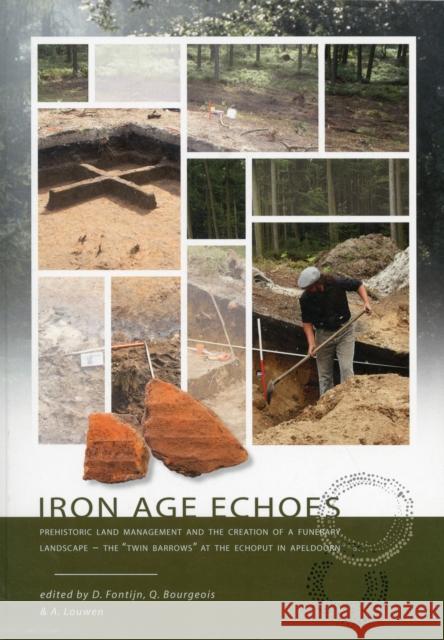Iron Age Echoes: Prehistoric Land Management and the Creation of a Funerary Landscape - The Twin Barrows at the Echoput in Apeldoorn » książka
topmenu
Iron Age Echoes: Prehistoric Land Management and the Creation of a Funerary Landscape - The Twin Barrows at the Echoput in Apeldoorn
ISBN-13: 9789088900730 / Angielski / Miękka / 2012 / 174 str.
Iron Age Echoes: Prehistoric Land Management and the Creation of a Funerary Landscape - The Twin Barrows at the Echoput in Apeldoorn
ISBN-13: 9789088900730 / Angielski / Miękka / 2012 / 174 str.
cena 218,16
(netto: 207,77 VAT: 5%)
Najniższa cena z 30 dni: 218,16
(netto: 207,77 VAT: 5%)
Najniższa cena z 30 dni: 218,16
Termin realizacji zamówienia:
ok. 30 dni roboczych
Bez gwarancji dostawy przed świętami
ok. 30 dni roboczych
Bez gwarancji dostawy przed świętami
Darmowa dostawa!
Groups of burial mounds may be among the most tangible and visible remains of Europe's prehistoric past. Yet, not much is known on how "barrow landscapes" came into being . This book deals with that topic, by presenting the results of archaeological research carried out on a group of just two barrows that crown a small hilltop near the Echoput ("echo-well") in Apeldoorn, the Netherlands.
In 2007, archaeologists of the Ancestral Mounds project of Leiden University carried out an excavation of parts of these mounds and their immediate environment. They discovered that these mounds are rare examples of monumental barrows from the later part of the Iron Age. They were probably built at the same time, and their similarities are so conspicuous that one might speak of "twin barrows." The research team was able to reconstruct the long-term history of this hilltop. We can follow how the hilltop that is now deep in the forests of the natural reserve of the Kroondomein Het Loo, once was an open place in the landscape. With pragmatism not unlike our own, we see how our prehistoric predecessors carefully managed and maintained the open area for a long time, before it was transformed into a funerary site. The excavation yielded many details on how people built the barrows by cutting and arranging heather sods, and how the mounds were used for burial rituals in the Iron Age.










